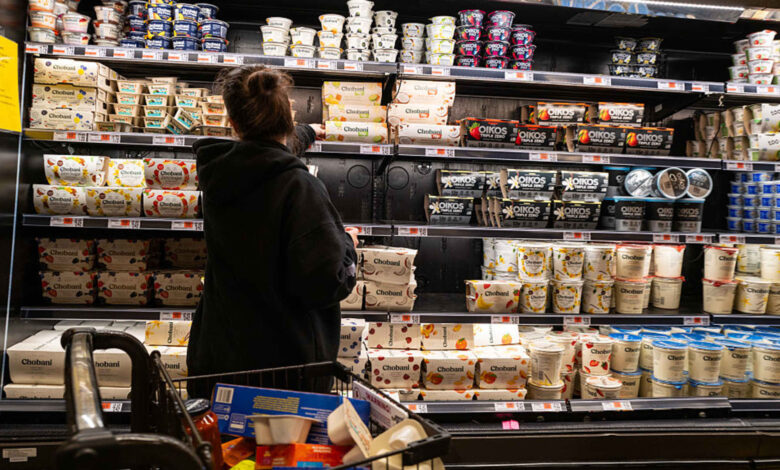Consumer sentiment slides to second-lowest on record as inflation expectations jump after tariffs

A woman walks in an aisle of a Walmart supermarket in Houston, Texas, on May 15, 2025.
Ronaldo Schemidt | Afp | Getty Images
Concerns over tariffs causing higher inflation are on the rise among U.S. consumers, as indicated by a recent survey from the University of Michigan released on Friday.
The consumer sentiment index fell to 50.8 in the preliminary reading for May, down from 52.2 in April, marking the second-lowest reading on record after June 2022.
Expectations for price changes also worsened, with year-ahead inflation expectations climbing to 7.3% from 6.5% in the previous month, and long-term inflation expectations increasing to 4.6% from 4.4%.
While a significant portion of the survey was conducted before the announcement of a 90-day tariff pause between the U.S. and China, concerns over trade policies remain a major factor influencing consumer sentiment.
“Tariffs were mentioned by almost three-quarters of consumers, up from around 60% in April; the uncertainty surrounding trade policies continues to dominate consumers’ economic outlook,” noted Joanne Hsu, director of the Surveys of Consumers.
Inflation expectations hold significance for investors and policymakers, with Federal Reserve Chair Jerome Powell emphasizing the importance of ensuring that long-term inflation expectations do not spike due to tariffs before considering rate cuts.
Despite the temporary halt on tariffs, the effective tariff rate for goods entering the U.S. remains substantially higher than pre-Trump administration levels. Economists are divided on the potential impact of tariffs on prices, with the extent of any increase and its implications for long-term inflation remaining uncertain.
Recent inflation data for April did not reflect a tariff-related surge, with both the consumer price index and producer price index coming in below consensus estimates.
The final consumer sentiment index for May is scheduled for release on May 30 and is anticipated to provide insights on whether the tariff pause has influenced consumer sentiment positively.





